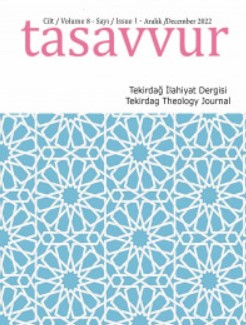Hanefî Hukuk Düşüncesinde Ayn-Deyn Ayrımı ve Hukukî Düzenlemelere Etkisi - İş ve İstisnâ’ Akdi Örneği -
The Ayn-Dayn Distinction in Ḥanafī Legal Thought and Its Effect on Legal Arrangements -The Example of Labor Contract and Contract of Construction-
Author(s): Ünal YERLİKAYASubject(s): Islam studies, Sharia Law, Labour and Social Security Law, Qur’anic studies
Published by: Tekirdağ Namık Kemal Üniversitesi İlahiyat Fakültesi
Keywords: Islamic Law; Ḥanafī Legal Thought; Ayn; Dayn; Labor Contract; Contract of Construction;
Summary/Abstract: The ayn-dayn distinction in Ḥanafī legal thought shapes directly many regulations related to the law of obligations, from the legitimacy conditions of the contracts to the principles of compensation obligation. Three aspects are important in understanding the formative function of this distinction. The first of them is what is the conceptual content of ayn and dayn in Ḥanafī terminology. The second of them is what kind of relationship there is between the qualities of goods and ayn and dayn. The third of them is what kind of differences exist between ayn and dayn in terms of their effects on legal regulations. According to Ḥanafī terminology, in a debt relationship, dayn means goods that have not yet been delivered to the creditor, whether they are in the hands of the debtor or not, in terms of goods (gold, silver and money) that are not suitable for determination by determining. Dayn represents the identical goods that is under the responsibility of the debtor in terms of non-existing identical goods. In terms of existing identical goods, dayn represents the identical goods that exist in clusters but have not yet been determined individually. Non-standard goods are goods that are not suitable for dayn because they are not suitable for abstraction from their material existence. Ayn represents the existing and determined goods in terms of non-standard goods and existing identical goods. Ayn represents the goods received by the creditor in terms of gold, silver, money and identical goods that are in the debtor's obligation from the beginning.
Journal: Tasavvur Tekirdağ İlahiyat Dergisi
- Issue Year: 8/2022
- Issue No: 1
- Page Range: 289-319
- Page Count: 31
- Language: Turkish

